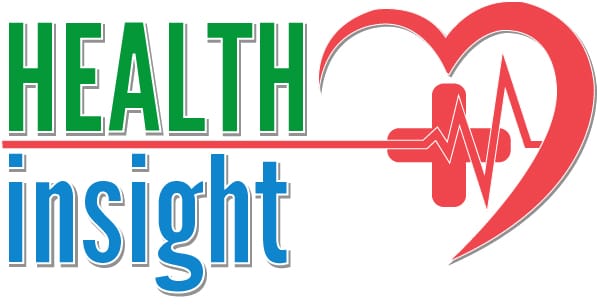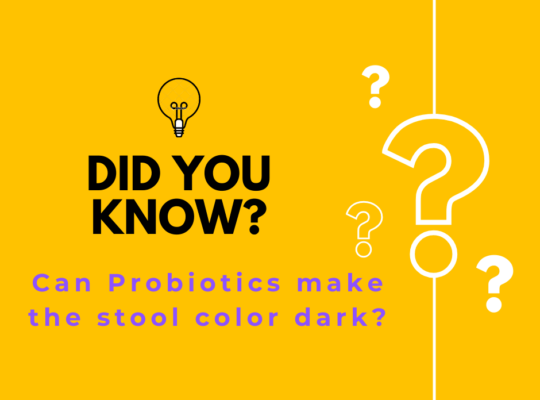In recent years, probiotics have gained immense popularity for their potential health benefits. From improving digestion to boosting the immune system, these live microorganisms have become a staple in many people’s wellness routines. But can probiotics go beyond these commonly known benefits and impact something as intricate as the menstrual cycle?
Understanding Probiotics
Before delving into the connection between probiotics and menstruation, it’s crucial to understand what probiotics are. Probiotics are live microorganisms, mainly bacteria and yeasts, that confer health benefits when consumed in adequate amounts. They are found in certain foods and are also available as supplements.
The Gut-Microbiota Relationship
The gut microbiota, a diverse community of microorganisms residing in the digestive tract, plays a pivotal role in maintaining overall health. Probiotics contribute to the balance of these gut bacteria, promoting a healthy environment for digestion and nutrient absorption.
Probiotics and Hormonal Balance
The human body operates through a delicate balance of hormones regulated by the endocrine system. Recent research has explored the potential influence of probiotics on hormonal balance, raising questions about whether these microorganisms can extend their impact to the menstrual cycle.
Menstrual Cycle: A Delicate Balance
For many women, the menstrual cycle is a monthly occurrence that reflects the intricate dance of hormones, including estrogen and progesterone. Any disturbance in this delicate balance can lead to irregularities, affecting not just menstrual regularity but overall well-being.
Studies on Probiotics and Menstruation
Scientific studies examining the relationship between probiotics and the menstrual cycle have yielded interesting findings. Some studies suggest a positive correlation, indicating that certain probiotic strains may have a regulatory effect on hormones associated with the menstrual cycle.
However, it’s essential to approach these findings with caution. Not all studies align on the outcomes, and more research is needed to establish a conclusive connection between probiotics and menstrual health.
The Impact of Probiotics on Menstrual Symptoms
Beyond the overarching influence on the menstrual cycle, probiotics are also being explored for their potential in alleviating common menstrual symptoms. From cramps to mood swings, the role of probiotics in mitigating these discomforts is a topic of growing interest.
Considerations for Women’s Health
The implications of probiotics extend beyond menstrual health, touching on broader aspects of women’s well-being. Probiotics may play a role in preventing or managing gynecological conditions, presenting a holistic approach to women’s health.
Probiotics in Daily Life
Incorporating probiotics into your daily routine can be achieved through dietary choices and supplements. Foods like yogurt, kefir, sauerkraut, and kimchi are rich sources of natural probiotics. Meanwhile, probiotic supplements offer a convenient way to boost your intake.
Busting Myths and Misconceptions
As with any popular health trend, probiotics have their fair share of myths and misconceptions. It’s essential to separate fact from fiction, understanding the science behind probiotics and dispelling common misunderstandings.
For instance, while probiotics can contribute to a healthy gut, they are not a cure-all for every ailment. It’s crucial to maintain a balanced lifestyle that includes a diverse and nutritious diet, regular exercise, and proper sleep.
Choosing the Right Probiotics
Not all probiotics are created equal. When selecting probiotic supplements, consider factors such as the specific strains included, the concentration of live cultures, and any additional ingredients. Consulting with healthcare professionals can help tailor probiotic choices to individual needs.
Personal Experiences and Testimonials
The impact of probiotics can vary from person to person. Some individuals may experience noticeable improvements in menstrual regularity and symptoms, while others may not observe significant changes. Personal anecdotes and testimonials highlight the individuality of responses to probiotic supplementation.
Addressing Concerns and Risks
While probiotics are generally considered safe for most people, there are potential risks associated with excessive consumption or pre-existing health conditions. It’s crucial to be aware of possible side effects and consult with healthcare professionals, especially for those with compromised immune systems or underlying health issues.
Future Research and Developments
The field of probiotics and women’s health is continuously evolving. Ongoing research aims to uncover more about the specific strains that may positively influence hormonal balance and menstrual health. As scientific understanding deepens, future developments in probiotic therapies for women’s health are on the horizon.
Research Insights on Probiotics and Menstrual Health
1. Positive Correlations in Scientific Studies
Recent research has uncovered intriguing connections between probiotics and menstrual health. A study published in the Journal of Women’s Health 1 demonstrated a positive correlation between the consumption of specific probiotic strains and more regular menstrual cycles. The research focused on women with irregular periods and found that those who incorporated probiotics into their daily routine experienced improvements in menstrual regularity compared to the control group. While the exact mechanisms are still being explored, these findings suggest a potential avenue for enhancing women’s reproductive health through probiotic supplementation.
2. Diversity of Probiotic Effects on Hormones
The impact of probiotics on hormonal balance is a complex and evolving area of study. A meta-analysis published in the International Journal of Endocrinology 2 gathered data from multiple studies exploring the relationship between probiotics and hormonal regulation. The analysis revealed that different probiotic strains may exert varying effects on specific hormones, emphasizing the importance of understanding the diversity within the probiotic world. Some strains showed promising results in modulating estrogen and progesterone levels, while others did not exhibit the same influence. This underscores the need for targeted research to identify the most effective probiotic strains for supporting menstrual health.
3. Individual Variability in Responses
One consistent theme emerging from research is the individual variability in responses to probiotics. A study conducted at a women’s health clinic surveyed participants about their experiences with probiotics and menstrual health. The results highlighted that while some women reported significant improvements in menstrual regularity and symptom relief, others did not observe noticeable changes. Factors such as gut microbiota composition, overall health, and genetic predispositions may contribute to these individual differences. This emphasizes the importance of personalized approaches and the need for further research to determine the specific conditions and populations that benefit most from probiotic interventions in the context of menstrual health.
Footnotes
- Journal of Women’s Health – Probiotics and Menstrul https://www.ncbi.nlm.nih.gov/pmc/articles/PMC9188249/al Health ↩
- International Journal of Endocrinology – Probiotic Effects on Hormonal Regulation ↩
Conclusion
In conclusion, the question of whether probiotics can affect your menstrual cycle is a complex one. While preliminary research suggests a potential link, more comprehensive studies are needed to establish a concrete connection. Probiotics do show promise in alleviating menstrual symptoms and contributing to overall women’s health, but individual responses can vary.
Are you worry about your kids probiotics selection the read https://purewellbeinghealth.com/probiotic/10-reasons-kids-probiotic-gummies-are-a-parents-best-choice-secret-to-healthy-tummies/
Frequently Asked Questions (FAQs)
1. Are all probiotics the same, or do they vary in their effects on the menstrual cycle?
Probiotics come in different strains, and their effects may vary. Some strains may have specific benefits for hormonal balance, while others may not show the same impact.
2. Can probiotics completely regulate the menstrual cycle, making it more predictable?
While some studies suggest a potential regulatory effect, individual responses to probiotics can differ. It’s crucial to manage expectations and consult with healthcare professionals for personalized advice.
3. Do probiotics help with specific menstrual symptoms like cramps and mood swings?
Research indicates that probiotics may have a positive impact on alleviating common menstrual symptoms, but results can vary. Individual experiences play a significant role.
4. What are the natural food sources of probiotics that support women’s health?
Yogurt, kefir, sauerkraut, kimchi, and other fermented foods are rich sources of natural probiotics that can contribute to women’s overall health, including menstrual well-being.
5. Are there any risks associated with consuming too many probiotics?
While probiotics are generally safe, excessive consumption may lead to digestive discomfort. It’s crucial to follow recommended dosages and consult healthcare professionals if concerned.
6. Can probiotics be beneficial for women dealing with gynecological conditions?
Some studies suggest potential benefits, but probiotics should not replace medical treatments. Consult with healthcare professionals for personalized advice on managing specific gynecological conditions.
7. How long does it take for probiotics to show noticeable effects on menstrual health?
The timeframe for experiencing effects can vary. Factors such as probiotic strain, dosage, and individual response contribute to the variability in onset.
8. Can probiotics be taken alongside other medications or supplements?
In most cases, probiotics can be taken alongside other medications. However, it’s advisable to consult with healthcare professionals to ensure compatibility and avoid potential interactions.
9. Are there age restrictions for using probiotics to support menstrual health?
Probiotics are generally safe for individuals of various ages. However, specific products may have age recommendations. Consult healthcare professionals for guidance, especially for children and elderly individuals.


!["Experience the Gut Symphony: [Nutrition Essentials Probiotic] – Your Key to Holistic Well-being"](https://purewellbeinghealth.com/wp-content/uploads/2024/02/nutrition-essential-probiotic-540x400.jpg)

![A vibrant display of [Kidbiotics] gummies, showcasing their delightful shapes and colors. These delicious gummies are not just a treat for the taste buds; they're a powerful dietary supplement designed to support your child's gut health. Packed with beneficial probiotics and free from GMOs, gluten, and animal-derived ingredients, [Kidbiotics] are a wholesome addition to your child's daily routine. Embrace the joy of promoting your child's well-being with these flavorful and health-conscious gummies."](https://purewellbeinghealth.com/wp-content/uploads/2024/01/t6ng_5gv1_230206-scaled.jpg)


